digitalhumanities
Citizen Cartography @NYPL: Map Warper Workshop at the GC on 3/23
On 15, Mar 2016 | In Events of Interest, Resources | By Mary Catherine Kinniburgh
GC Digital Initiatives and CUNY DHI invite you to attend a special workshop in collaboration with the New York Public Library. Please join us for “Citizen Cartography @NYPL!”
Wednesday, March 23, 2016 from 6:00 PM to 8:00 PM
Room C203, The Graduate Center, CUNY
Register in advance on our EventBrite page
The New York Public Library’s Map Warper is a free online crowdsourcing tool that enables librarians and the general public to align digital images of historical maps with today’s map through a process called georectification, or “warping” maps. As part of NYPL’s ongoing commitment to creating new publicly available resources and building new platforms for historical research, the Library has set out to warp over 4,000 maps!
In this hands-on workshop, we will give you an overview of the NYPL Map Warper tool (available at maps.nypl.org) as well as get you started warping maps. Come learn more about how to use this tool and the ways in which it can impact your research. For more information, watch the tutorial at maps.nypl.org, or send an email to citizencartographer@gmail.com or gc.digitalfellows@gmail.com.
This workshop is free and open to the public. Please register in advance to attend at http://www.eventbrite.com/e/citizen-cartography-nypl-map-warper-workshop-tickets-21536035863
Applications Open for the GCDI Digital Research Bootcamp
On 08, Dec 2015 | In Events of Interest | By Ian Phillips
To apply and find out more information, visit cuny.is/drbootcamp!
when: January 19–22, 2016
what: four-day intensive in digital research methods
where: The Graduate Center, CUNY
why: to equip our academic community with digital research skills
who: for CUNY graduate students and faculty of all skill levels and disciplines (no previous digital experience required)
GC Digital Initiatives invites applicants for the inaugural Digital Research Bootcamp, an opportunity to develop digital research skills and connect with like-minded colleagues in an interdisciplinary environment. Free of charge to participants, the GC Digital Research Bootcamp has been developed in partnership with Software Carpentry, the New York Public Library, Mozilla Science Lab, Humanities Intensive Learning and Teaching, and the Digital Humanities Summer Institute thanks to the sponsorship of GCDI, The Graduate Center, and The CUNY Strategic Investment Initiatives Program.
Apply now and find more information at cuny.is/drbootcamp! We advise applicants to apply early to secure a spot. Please direct questions and inquiries to gc.digitalfellows@gmail.com
Call for Lightning Talk Presentations at CUNY DHI: Building a Digital Humanities Community at the City University of New York
On 12, Oct 2015 | In Events of Interest | By Mary Catherine Kinniburgh
Call for Lightning Talk Presentations at CUNY DHI: Building a Digital Humanities Community at the City University of New York
We are now accepting presentation proposals that highlight ongoing, current, and recent digital humanities work across The City University of New York, and would like to encourage you to consider participating. All disciplines, all research, and all students, faculty, and staff are welcome to attend and present.
The event is scheduled for Tuesday, November 10th, 6:30-8:30pm at The Graduate Center. Please plan to speak for no more than five minutes. Groups may present collaboratively or with a representative. Proposals may be submitted through the following form: http://goo.gl/forms/mF6oPcEqfs. Once you have completed the form, we will contact the email address provided with further details. Thank you for your interest in participating, and we look forward to seeing you there.
For specific questions, please do not hesitate to contact us at mgold@gc.cuny.edu or mckinniburgh@gmail.com.
Sponsored by CUNY DHI and GC Digital Initiatives.
Katina Rogers on Alt-Academic Careers: Mon 11/18, 4:15p-5:30p Rooms 9204/9205
On 11, Nov 2013 | In Events of Interest | By Laura Kane
Please join CUNY DHI and the Digital Praxis Seminar for a talk by Katina Rogers on Alt-Academic Careers.
Katina Rogers – Alt-Academic Careers
While many graduate programs continue to focus on tenure track placement rates, a growing proportion of humanities scholars are embracing a much broader range of intellectually stimulating careers in, around, and beyond the academy. Focusing both on her own career path and on her research at the Modern Language Association, the Scholarly Communication Institute, and the Scholars’ Lab at the University of Virginia, Katina Rogers will discuss strategies to support professionalization, public scholarship, and career development across a wide array of possible outcomes.
About the Speaker
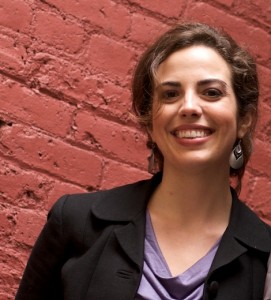 Katina Rogers is managing editor of MLA Commons, the Modern Language Association’s new online platform for collaboration and scholarly communication. She previously served as Senior Research Specialist with the Scholarly Communication Institute, a Mellon-funded humanities think tank based in the University of Virginia’s Scholars’ Lab. Her current research focuses on graduate education reform, career paths for humanities scholars, and innovative modes of scholarly production. Katina holds a Ph.D. in Comparative Literature from the University of Colorado.
Katina Rogers is managing editor of MLA Commons, the Modern Language Association’s new online platform for collaboration and scholarly communication. She previously served as Senior Research Specialist with the Scholarly Communication Institute, a Mellon-funded humanities think tank based in the University of Virginia’s Scholars’ Lab. Her current research focuses on graduate education reform, career paths for humanities scholars, and innovative modes of scholarly production. Katina holds a Ph.D. in Comparative Literature from the University of Colorado.
Kathleen Fitzpatrick, “Open Review, the New Peer, and the Future of Scholarly Communication” – Mon, 11/4, 4:15pm-5:30pm, Room 9206/9207
On 30, Oct 2013 | In Events of Interest | By Laura Kane
Kathleen Fitzpatrick: “Open Review, the New Peer, and the Future of Scholarly Communication”
About The Speaker
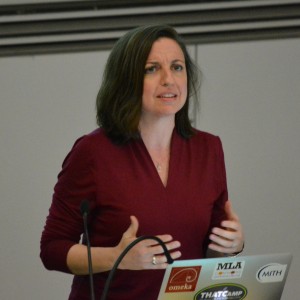 Kathleen Fitzpatrick is Director of Scholarly Communication of the Modern Language Association and Visiting Research Professor of English at NYU. She is author of Planned Obsolescence: Publishing, Technology, and the Future of the Academy (NYU Press, 2011) and of The Anxiety of Obsolescence: The American Novel in the Age of Television (Vanderbilt University Press, 2006). She is co-founder of the digital scholarly network MediaCommons, where she has led a number of experiments in open peer review and other innovations in scholarly publishing.
Kathleen Fitzpatrick is Director of Scholarly Communication of the Modern Language Association and Visiting Research Professor of English at NYU. She is author of Planned Obsolescence: Publishing, Technology, and the Future of the Academy (NYU Press, 2011) and of The Anxiety of Obsolescence: The American Novel in the Age of Television (Vanderbilt University Press, 2006). She is co-founder of the digital scholarly network MediaCommons, where she has led a number of experiments in open peer review and other innovations in scholarly publishing.
May 31: Archiving Catastrophe – Digital Humanities & Times of Disaster
On 25, May 2012 | In Meetings | By Charlie Edwards
Please join us on Thursday, May 31, 2012, when three leading Digital Humanists will take part in a panel discussion that addresses DH-related efforts to archive and preserve materials after catastrophic events.
Thursday, May 31, 2012, 6:30pm-8:30pm
Room 6496, CUNY Graduate Center
Archiving Catastrophe: Digital Humanities & Times of Disaster
Paul Millar (University of Canterbury, New Zealand), Tom Scheinfeldt (George Mason University), and Steve Brier (CUNY Graduate Center)
In the months since a 7.1 magnitude earthquake hit New Zealand’s Canterbury province in September 2010, the region has experienced over ten thousand aftershocks, 430 above magnitude 4.0. The most devastating aftershock, a 6.2 earthquake under the centre of Christchurch on 22 February 2011, had one of the highest peak ground acceleration rates ever recorded. This event claimed 185 lives, damaged 80% of the central city beyond repair, and forced the abandonment of 6,000 homes. It is the third costliest insurance event in history. Paul Millar, project leader of the CEISMIC Canterbury Earthquakes Digital Archive, will discuss the role of Digital Humanities in developing an international resource to preserve the digital record of the earthquakes’ impacts and the long-term process of recovery.
The Hurricane Digital Memory Bank, based at the Roy Rosenzweig Center for History and New Media (RRCHNM) at George Mason University, uses electronic media to collect, preserve, and present the stories and digital record of Hurricanes Katrina, Rita, and Wilma. The project contributes to the ongoing effort by historians and archivists to preserve the record of these storms by collecting first-hand accounts, on-scene images, blog postings, and podcasts. Tom Scheinfeldt, Managing Director of RRCHNM, will discuss both this project and, with CUNY Grad Center’s Steve Brier, the September 11 Digital Archive.
The September 11 Digital Archive uses electronic media to collect, preserve, and present the history of the September 11, 2001 attacks in New York, Virginia, and Pennsylvania and the public responses to them. Funded by a major grant from the Alfred P. Sloan Foundation and organized by the American Social History Project at the Graduate Center and at RRCHNM, the work of the Archive is not only to gather digital materials related to the attacks but also to assess how history is being recorded and preserved in the twenty-first century, and to develop free software tools to help historians do a better job of collecting, preserving, and writing history. To these ends the Archive has partnered with the Library of Congress, which in September 2003 accepted the Archive into its permanent collections – an event that both ensured the Archive’s long-term preservation and marked the Library’s first major digital acquisition.
All three projects seek to foster positive legacies of terrible events by allowing the people affected to tell their stories in their own words, which as part of the historical record will remain accessible to a wide audience for generations to come.
About Paul Millar:
Associate Professor Paul Millar is the Head of the Department of English, Cinema and Digital Humanities at the University of Canterbury, New Zealand. His research interests include New Zealand and Pacific literature, literary biography, digital textual scholarship and Australasian attitudes to China. In 2001 he co-founded the New Zealand Electronic Text Centre, and he is currently focused on adding functionality to the CEISMIC Canterbury Earthquakes federated digital archive.
About Tom Scheinfeldt:
Tom Scheinfeldt is Managing Director of the Roy Rosenzweig Center for History and New Media and Research Assistant Professor of History in the Department of History and Art History at George Mason University. He has lectured and written extensively on the history of popular science, the history of museums, history and new media, and the changing role of history in society, and has worked on traditional exhibitions and digital projects at the Colorado Historical Society, the Museum of the History of Science in Oxford, The Louisiana State Museum, the National Museum of American History, and the Library of Congress. In addition to managing general operations at RRCHNM, Scheinfeldt directs several of its online history projects, including Omeka, THATCamp, One Week | One Tool, the September 11 Digital Archive, the Hurricane Digital Memory Bank, the Papers of the War Department, 1784-1800, and Gulag: Many Days, Many Lives. He gave a memorable talk here at CUNY DHI in December 2010.
About Steve Brier:
Dr. Stephen Brier founded the Interactive Technology and Pedagogy Certificate Program at The Graduate Center in 2002 and serves as its Coordinator. He is a historian and a member of the doctoral faculty in Urban Education who has published widely in text, video, and various forms of multimedia on issues from U.S. history to the uses of interactive technology to improve teaching and learning. He was the founding director of The Graduate Center’s American Social History Project/Center for Media and Learning and was the executive producer of the award-winning “Who Built America?” multimedia curriculum, including textbooks, videos, and CD-ROMs. He has co-produced other award-winning websites, including “History Matters” and the “September 11 Digital Archive”. Brier, who previously served for eleven years as a senior administrator at The Graduate Center, is also the institution’s Senior Academic Technology Officer and the co-director of its New Media Lab.
May 8: Ramona Hernández and Anthony Stevens-Acevedo on the Spanish Paleography Digital Teaching and Learning Tool
On 03, May 2012 | In Meetings | By Charlie Edwards
Please join us on Tuesday, May 8, 2012 when the leaders of the Spanish Paleography Digital Teaching and Learning Tool project, funded by a Digital Humanities Start-Up Grant awarded by the NEH’s Office of Digital Humanities, will visit CUNY DHI to discuss their work to date. The project aims to teach users the paleographic skills required to decode early-modern Spanish manuscripts.
Tuesday, May 8, 2012, 6:30pm-8:30pm
Room 6496, CUNY Graduate Center
The Spanish Paleography Digital Teaching and Learning Tool
Ramona Hernández and Anthony Stevens-Acevedo, CUNY Dominican Studies Institute, City College
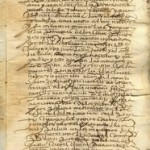
The Spanish Paleography Digital Teaching and Learning Tool aims to teach users how to decode and read the now abstruse three main handwriting styles in fashion in the early modern Spanish-language world. At the heart of the project is the creation of a website prototype where visitors will be able to consult, on the same screen, different samples of early-modern Spanish handwritings and line-by-line transcriptions into contemporary typeface. By a basic process of repeated visual comparison, the users learn how to decipher or decode the early-modern Spanish manuscripts – a learning that still today, for the most part, is restricted to very specialized university, archives and library settings. Allowing Internet users worldwide to access this learning at any time will hopefully entice more students and scholars in the Humanities to conduct research on the early-modern Spanish world, while democratizing access to the paleographic skills involved.
About Ramona Hernández:
Dr. Ramona Hernández is director of the Dominican Studies Institute of the City University of New York (CUNY) housed at The City College of New York, and is Professor of Sociology at City College and on the faculty of the Graduate Center, CUNY. She serves as a trustee of the International Institute of Advanced Studies in the Social Sciences (Instituto Global de Altos Estudios en Ciencias Sociales) of the Dominican Republic. Dr. Hernández earned the Ph.D. and M.Phil. in Sociology from the Graduate Center, CUNY; an M.A. in Latin American and Caribbean Studies from New York University; and the B.A. in Latin American History from Lehman College. She is also author of pioneering texts in the areas of migration, labor, and Dominican studies, including The Mobility of Workers Under Advanced Capitalism: Dominican Migration to the United States (named Outstanding Academic Title by Choice, 2002) and, as co-author, The Dominican Americans (1998). She is a trustee of the Sociological Initiatives Foundation.
About Anthony Stevens-Acevedo:
Anthony Stevens-Acevedo is assistant director and founding member of the Dominican Studies Institute of the City University of New York (CUNY DSI) at The City College of New York. He is a founding member of the Council of Dominican Educators, the Dominican Studies Association, and a Foreign Corresponding Member of the Dominican Academy of History (Dominican Republic). Stevens-Acevedo is a historian and focuses his research on the early colonial history of the Dominican Republic. He is the lead investigator in CUNY DSI’s Dominican colonial research projects. He has an M.A. in History from The City College of New York, CUNY, and a B.A. in History of the Americas from the University of Seville, Spain. He is currently a student in the History Program at the CUNY Graduate Center.
Dr. Hernández and Stevens-Acevedo have recently co-authored the chapter ‘Dominican Americans’ for ‘Multicultural America: An Encyclopedia of the Newest Americans,’ Ronald H. Baylor, editor, 2011. In 2011 they co-edited a special issue on Dominicans in the United States of “Camino Real,” the Journal of Instituto Franklin of the University of Alcalá, Spain, devoted to the Hispanic world in the United States.
May 1: Doug Reside (NYPL) on the Digital Creative Process of Jonathan Larson’s RENT
On 26, Apr 2012 | In Meetings | By Charlie Edwards
Please join us on Tuesday, May 1, 2012 when we will be delighted to host Doug Reside of the New York Public Library.
“How do you document real life?: Discovering the Digital Creative Process of Jonathan Larson’s RENT”
Doug Reside, New York Public Library
Tuesday, May 1, 2012, 6:30pm-8:30pm
Room 6496, CUNY Graduate Center
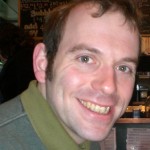
Doug Reside will discuss his attempts to reconstruct the creative process that produced the musical RENT by recovering and studying the digital drafts from Jonathan Larson’s original floppy disks. Reside will also offer some reflections on his newly minted position as Digital Curator of the Performing Arts at New York Public Library and will suggest strategies libraries may employ for dealing with the coming onslaught of born digital research collections.
About Doug Reside:
Doug Reside became the first Digital Curator of the Performing Arts at New York Public Library in February of 2011 after serving for four and a half years on the directorial staff of the Maryland Institute for Technology in the Humanities (MITH) at the University of Maryland in College Park. He has led numerous Digital Humanities projects and is currently editing the Musical of the Month blog at NYPL which makes available one musical theater libretto each month in various ebook formats.
Oct 18: DH in the Classroom: Shannon Mattern & Mark Sample
On 13, Oct 2011 | In Meetings | By Charlie Edwards
Please join us on Tuesday October 18, 2011, when we are excited to welcome two innovative practitioners of “Digital Humanities in the Classroom” – The New School’s Shannon Mattern, and Mark Sample, of George Mason University.
Details are below; we look forward to seeing you there!
Time & Place: Tuesday October 18, 2011, 6:30-8:30pm, Room 6496, CUNY Graduate Center
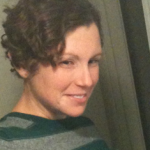 Shannon Mattern, “Beyond the Seminar Paper: Setting New Standards for New Forms of Student Work”
Shannon Mattern, “Beyond the Seminar Paper: Setting New Standards for New Forms of Student Work”
By exploring how new technologies might function as teaching tools or platforms on which students can demonstrate their learning, we expand the means and ends of education. With this increasing openness of pedagogical forms comes the responsibility to justify our choices and develop new forms of criticism and modes of assessment. Using several of my own courses as examples, I’ll address the challenges and potential benefits of holding students, and ourselves, accountable for the choices we make in our classrooms and advising relationships. I’ll focus on the value of (1) student documentation of their learning process, and in particular (2) students’ justification of their chosen methods and modes of presentation; (3) collaborative development of criteria for evaluation; and (4) connecting our work in the classroom to larger public problems and public institutions.
Suggested readings:
- Shannon Mattern, “Trying to Wrap My Head Around the Digital Humanities, Part 2” Words in Space (June 23, 2010)
- Shannon Mattern, “Evaluating Multimodal Student Work” Words in Space (August 11, 2010)
- Steve Anderson, “Regeneration: Multimedia Genres and Emerging Scholarship” Institute for Multimedia Literacy (June 29, 2008)
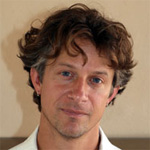 Mark Sample, “Building and Sharing When You’re Supposed to be Teaching”
Mark Sample, “Building and Sharing When You’re Supposed to be Teaching”
My pedagogy can increasingly be summed up in five words: “Make things. And share them.” I will talk briefly about my move toward assignments and projects in the undergraduate humanities classroom that emphasize making—as opposed to simply writing. I will also address the sharing aspect of these projects, which I see as a critical intervention into the enclosured experience most students have in higher education.
Suggested readings:
- “Student Contracts for Digital Projects” by Jeffrey McClurken
- “Integrating a Digital Project Into a Class: Deciding on a Project” by Amy Cavender
- “Using a Graphic Illustrator in Higher Education: Comic Life” by Billie Hara
Shannon Mattern is an Assistant Professor of Media Studies and Film at The New School and was, from 2006 to 2009, director of the Masters in Media Studies program. Her research and teaching focus on relationships among media, architectural, and urban space. Her book, The New Downtown Library, was supported by the Graham and Mellon foundations and published by the University of Minnesota Press in 2007. She has also published in several edited volumes and in journals including Space and Culture, Public Culture, and the Journal of Architectural Education. Her classes, which regularly involve the use of digital media, have resulted in the creation of exhibitions and installations and, in Fall 2010, thanks to the support of an Innovations in Education grant from The New School, a prototype of an open-source mapping tool for scholarly urban research. She is a recipient of The New School’s 2011 Distinguished University Teaching Award.
Mark Sample is an Assistant Professor in the Department of English at George Mason University, where is he also an affiliated faculty member with GMU’s undergraduate Honors College, its Cultural Studies doctoral program, and the Center for History and New Media. His research focuses on contemporary fiction, electronic literature, and videogames. His examination of the representation of torture in videogames was recently published in Game Studies, and he is working on a collaboratively written book about the Commodore 64 home computer. Mark has work in Hacking the Academy, a crowdsourced scholarly book forthcoming in print by the digitalculturebooks imprint of the University of Michigan Press. Mark has recently remixed the entire text of Hacking the Academy as Hacking the Accident. Mark is also an outspoken advocate of open source pedagogy and open source research. In recognition of his commitment to innovation in teaching, he was the recipient of George Mason’s 2010 Teaching Excellence Award. He is a regular contributor to ProfHacker, a feature at the Chronicle for Higher Education that focuses on pedagogy and scholarly productivity, and he also writes for Play the Past, a collaboratively edited scholarly blog that explores the intersection of cultural heritage and games.
This event is co-sponsored by The CUNY Digital Humanities Initiative and the CUNY Digital Studies Group, in partnership with The Center for the Humanities at The Graduate Center, CUNY.
Digital Humanities Syllabi
On 06, Jun 2011 | In Resources | By Matthew K. Gold
Do you teach a digital humanities course? Let us know by leaving a comment on this post. We’ll add it to the DH Syllabi page of the CUNY Digital Humanities Resource Guide, which is published on the wiki of the CUNY Academic Commons. I’ve embedded the DH Syllabi wiki page below.



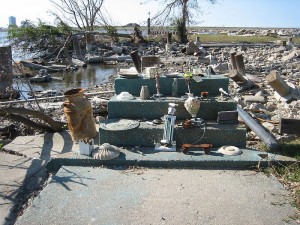
 Welcome to the blog of the CUNY DHI, an effort to build momentum and community around Digital Humanities practitioners at CUNY. We hope you'll join us at our upcoming events and that you'll follow this blog to hear about the latest news in the field.
Welcome to the blog of the CUNY DHI, an effort to build momentum and community around Digital Humanities practitioners at CUNY. We hope you'll join us at our upcoming events and that you'll follow this blog to hear about the latest news in the field.



Recent Comments